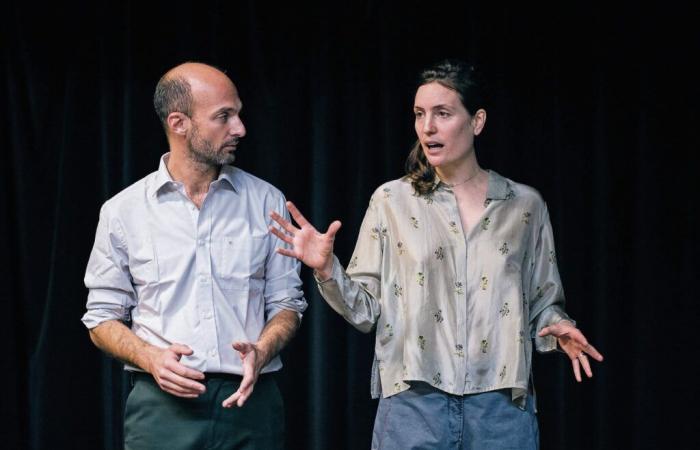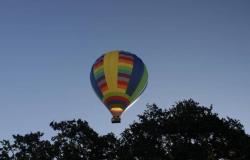The play is one of the first written and directed by the Portuguese playwright – today head of the Avignon festival. In a packed room mixing all ages, as always at the Théâtre du Jura, the play resonated like an ode to love and the passage of time.
On a refined stage, where a green curtain contrasts with a floor speckled with wood shavings, a man and a woman step forward. These two lovers tell us their story. This begins with the fear of losing the other.
A chiseled text, said with watchmaking precision
The first song – this is how Rodrigues names the scenes in his play – places the lovers in a moment of crisis, with a stay in hospital, a first face-to-face with the fragility of life, reality of death, the irreversibility of time. What to do with the time we are given? On stage, a kettle whistles, as a symbol of the time we take, which will also become a leitmotif of the couple: “We have time!”.
The piece is based on a chiseled text, said with horological precision. The sentences are polished, the silences sculpted with care; every word, every breath, every hesitation is thought out, helping to captivate the eye and the ear. The story is a love monologue in two voices, sometimes synchronous, sometimes out of sync – a reflection of the romantic relationship, made up of ruptures and agreements, shifts and harmonies.






